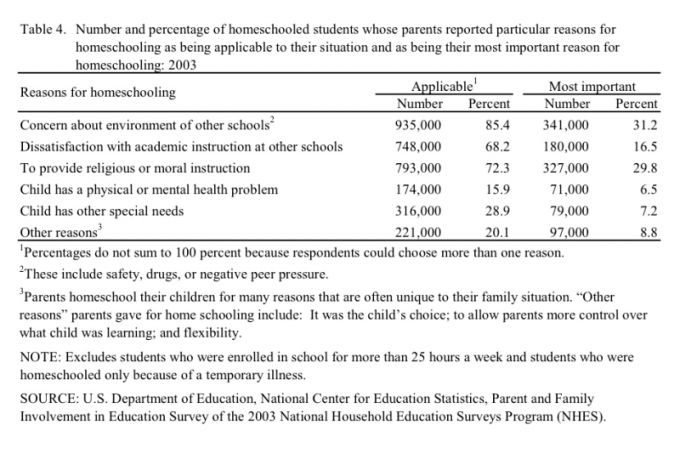The Motivations to Homeschool Children
In general, homeschooling as become an accepted means of educating a child. Some even site the foundations of our country as means of support for homeschooling, since "homeschooling was the way the Founding Fathers received their education" [1]. But there are other factors that have encouraged people, such as Tay and Zac Hanson, who comprise the 90's band Hanson, Jason Taylor who was drafted for the Miami Dolphins, or actor Charles Chaplin to join their homeschooled predecessors Mark Twain and Benjamin Franklin [2].
The motivations for homeschooling a child range from the need to attend to mental or physical disabilities, to parental concern about the educational environment. The greatest concern arose during Clinton's Presidency. While President Clinton did lead a national effort to reduce class size to 18 student in the primary grades, which would increase the quality of education, he did not receive much praise for these efforts. Rather, he was criticized for dumping funds in to the "black hole of public education" [1]. Public schooling has, in actuality, gained a very poor reputation. Public school teachers "promote students who can barely speak or read English". Additionally, public schools have become crime scenes that include activities such as drug peddling, robbing, assaults and bomb threats. In 1993, a Metropolitan LIfe study found that more than 10 percent of teachers and about a quarter of students had been victims of violence at a public school [1]. It is for these reasons that many parents have begun to homeschool their children.
In research complied in 2006, it was concluded that the 31 percent of parents identify the environment of schools, such as safety, drug use, or negative peer pressure, as the most important reason for homeschooling their children. Another 30 percent of parents were most concerned about their children's religious and moral instruction, as well as the moral environment their children were exposed to in institutionalized schools. This is especially understandable in light of the fact that 75% of homeschoolers are Evangelical Christians [3]. The third most prevalent reason why parents chose to homeschool their children, which represents the concerns of close to 16 percent of parents, is dissatisfaction with the academic instruction provided at other schools. Other factors that homeschooling parents consider include mental or physical health concerns for a child and other special needs that must be attended to [4]. (Refer to the chart below [4].)
In addition to these reasons, it has been suggested that homeschooled students get more "bang for their buck". Where as a publicly schooled student spent about $5,325 a year on education according to Brain Ray's 1997 study which culminated in his book Strengths of Their Own, a homeschooled student only spent about $546 each year for an education [5]. As of October 2007, the statistics showed that a homeschooling family would spend about $4,000 per household per year, where as it would cost $9,644 per child per year for a public education [6].
While it may seem that their education might be lacking in some way due to this monetary discrepancy, results lead to the exact opposite conclusion. The U.S. Department of Education has recognized that almost all data demonstartes that homeschooled students test above average. One critical piece of evidence that demonstrates this trend is that in 1997, the National Merit Scholarship Corporation chose over 70 homeschooled students as semifinalists [1]. Additionally, on average, homeschoolers score an average of 1.7 points higher on the ACTs than non-homeschools, and score and average of 1083 on the SATS. This is 67 points more than the national average [7]. It is evident that homeschooling produces successful students with minimal government interference, and at a fraction of the cost.

